[会议预告] 教育治理体系与治理能力现代化国际论坛 The Forum of Educational Governance in the 21st Century: Theories, Methods, and Practices
教育管理学院
2021-10-28
0
The Forum of Educational Governance in the 21st Century: Theories, Methods, and Practices
教育治理体系与治理能力现代化国际论坛
Host :
Beijing Normal University College of Educational Administration.
Sponsor:
Huiyan International College, Faculty of Education,Beijing Normal University.
1 NOV-3 NOV
Beijing China
Forum Introduction
We live in a new era of unprecedented social change with rapid development on information technology, artificial intelligence, and other high-tech products bringing us different socio-economic-cultural challenges. To successfully respond to these challenges, we need to improve the overall quality of education for social development by upgrading our educational governance system and governance capability. Thus, the Forum invites national and international scholars to share and exchange ideas about educational governance theories, methods, and practices to advance our understanding of the topic.
Theme:
The Forum of Educational Governance in the 21st Century: Theories, Methods, and Practices
Sub-Theme:
1) educational governance and social changes
2) research methods for educational governance
3) educational governance in the digital era
4) educational governance and equality
5) educational governance and quality of education
Schedule
Date | Time (Beijing Time) | Speaker | Topics |
1-NOV | 8:50-9:00AM | Prof. Kai Yu College of Educational Administration,Beijing Normal University | Opening ceremony |
9:00-10:00AM | Dr.Philip Wing Keung Chan Monash University | Network Governance and Mohe: Asia as Method in Education Studies | |
10:00-11:00AM | Prof. Michael A. Peters Beijing Normal University | The Politics of Devolution and Choice in Educational Governance: The Reform of ‘Tomorrow’s Schools’ in New Zealand | |
5:00-6:00PM | Dr. Kwok Kuen Tsang College of Educational Administration,Beijing Normal University | Network Government not Network Governance in China | |
6:00-7:00PM | Prof. Andrew Wilkins Goldsmiths, University of London | Sense making and coping with complexity: Using theory to reimagine governance | |
2-Nov | 9:00-10:00AM | Prof.Gerard A.Postiglione The University of Hong Kong | The Governance of Higher Education in Asia: Toward 2030
|
10:00-11:00AM | Prof. Paul Newton The Department of Educational Administration at the University of Saskatchewan. | Examining multi-levelled educational governance in Canada: The link between governance and educational quality
| |
11:00-12:00AM | Prof. Rui Yang University of Hong Kong | Teasing out Facts from Fiction: Some Preliminary Reflections on Higher Education Governance | |
7:00-8:00PM | Dr. Benjamin Green Beijing Normal University | The Pragmatic Instrumental Governance of Chinese Higher Education: Rational Chaos, Collective-Individualism, and Institutional Change | |
8:00-9:00PM | Prof. Aaron M. Kuntz Florida International University | Governing Inquiry: The Use of Methodology to Create Rational and Ordered Education | |
3-Nov | 9:00-10:00AM | Prof. Tim Hallett Indiana University
| Learning to think like an economist without becoming one:Professional education and ambivalent reproduction in a Masters of Public Affairs program |
10:00-11:00AM | Prof. Zhiyong Zhu, College of Educational Administration,Beijing Normal University Ms. Wenqi Zhang University of Washington Seattle College of Education. | Accountable Assessment, the Rite of Passage, and Academic Ritual:The Meanings of Doctoral Dissertation Defense Institution from the Perspective of Inhabited Institutionalism | |
5:00-6:00PM | Dr.Haiyan Qian Asia Pacific Centre of Leadership and Change, Education University of Hong Kong | System Leadership for Promoting Collective Responsibility in China: Boundary Spanners and Boundary Practice
| |
6:00-7:00PM | Dr. Shuangmiao Han College of Education, Zhejiang University. | Policy experimentation, education reform and China's experimental governance
|
Meeting platform
Nov 1
Zoom https://us02web.zoom.us/j/86855656818
Meeting ID: 868 556 56818
Password: 505631
Nov 2 & 3
Zoom https://us02web.zoom.us/j/87300248517
Meeting ID: 873 002 48517
Password: 549442
Language:
English
speaker

Dr. Philip Wing Keung Chan is a Senior Lecturer in the Faculty of Education, Monash University. His research work is focused on network governance, policy network, leadership, and public education reform, especially in the context of Chinese enterprise schools. He developed the concept of ‘Asia as method’, which offers multiple frames of reference in education research, including inter-referencing amongst countries in Asia. This is new territory in academic research. It is of particular benefit to students from Asia, for whom only a western theoretical lens has previously been available to look at education issues in their home countries.
Dr. Chan published a number of books include Asia Pacific Education: Diversity, Challenges and Changes (Monash University Publishing, 2012), Equality in Education: Fairness and Inclusion (Senses Publishers, 2014), Asia as Method in Education Studies: A Defiant Imagination (Routledge, 2015), Asia Pacific Education: Leadership, Governance and Administration (Information Age Publishing, 2019), Public Education Reform and Network Governance: Lessons from China's State-owned Enterprise Schools (Routledge, 2019), and School Governance in Global Contexts: Trends, Challenges and Practices (Routledge, 2021).
Report Abstract:
Network Governance and Mohe: Asia as Method in Education Studies
Abstract:Network governance is a major theory that examines interactions between groups that make up networks involved in policy making. There is a substantial body of work on how governance has affected the way central government contribute to the policy process. Rod Rhodes possibly offers the most prominent and persuasive account of the governance concept. He employs governance to explore the institutions, actors and processes of change within the core executive in British. He defines network governance as “self-organizing, inter-organizational networks characterized by interdependence, resource-exchange, rules of the game and significant autonomy from the state”. In light of the idea of ‘Asia as method’, this presentation discusses how the localized Western term of network governance, Mohe (磨合), is more effective at formulating and implementing Chinese education policy because the ‘significant autonomy from the state’ may not be fitted in China as the role of the Chinese central government is still dominant in the policy making. It is still highly resourced and has a range of powers with which to retain influence over public sector agencies.
This presentation utilises a case study to show that policy problems have been overcome by the actors’ participation when the railway state-owned enterprise school was removed from the Ministry of Railways to the Ministry of Education. The main actors involved in this education reform are the local Education Bureau, the General Education Department of Railway Bureau, the principal, current and retired teachers of railway state-owned enterprise schools. These actors have their primary goals, perceptions of the issues at hand, and the strategies they employed when they engaged in different deadlocked problems. Mohe is generally useful and fruitful for understanding the policy process in China. It has the potential to provide a framework to analyse the policy making process in the West, especially for countries where state power is still in place and cannot be excluded.
speaker
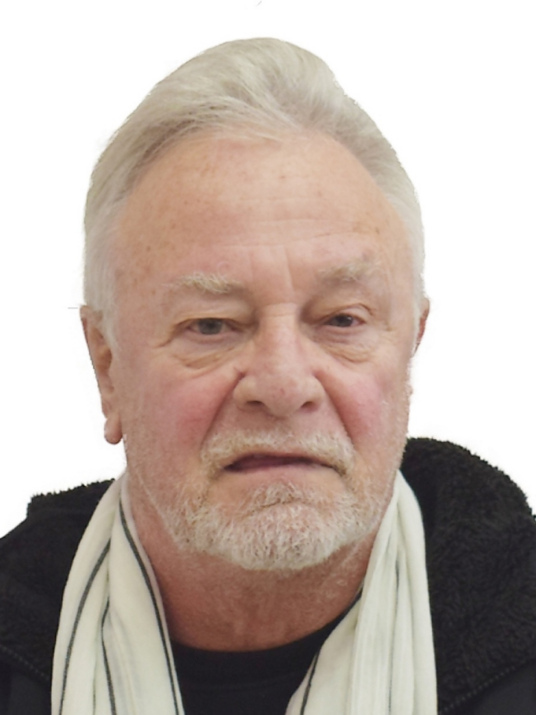
Michael A. Peters is Distinguished Professor of Education at Beijing Normal University, Emeritus Professor at the University of Illinois (Urbana-Champaign), and Honorary Senior Research Fellow at the University of Auckland. He is the Editor-in-Chief of the journals, Education Philosophy and Theory and The Beijing International Review of Education (with Zhu Xudong). He writes on topics in education and philosophy and has published books on Wittgenstein and Foucault, among others. His most recent publications include Pandemic Education and Viral Politics (2020), The Far-Right, Education and Violence (2020), both with Tina Besley, and Wittgenstein, Education and the Problem of Rationality (2021). He is a lifetime member of the NZ Academy of Humanities and was made an Fellow of the Royal Society of New Zealand in 2008. He is an Honorary Fellow of the Society for Research into Higher Education and he was awarded honorary doctorates by State University of New York (SUNY) in 2012 and the University of Aalborg in 2015. https://michaeladrianpeters.com/
Report Abstract:
The Politics of Devolution and Choice in Educational Governance: The Reform of ‘Tomorrow’s Schools’ in New Zealand
Early provision for state to support the existing network of mission schools with public funds in the Education Ordinance 1847 and the Education Act 1877 introduced compulsory, free and secular state schooling at primary level, for children 7-13. Regional education boards played the dominant role in school system and the period 1900-1980 saw an increase in the centralisation of the school system, with significant control transferred to schools and local communities from 1989 under “Tomorrow’s Schools”. The Taskforce to Review Education Administration (1987) identified five major issues in the education system: 1. Over-centralisation of decision-making; 2. Complexity; 3. Lack of information and choice; 4. Lack of effective management practices; 5. Feeling of powerlessness among parents, communities and practitioners. These recommendations were made against the backdrop of a neoliberal government strongly influence by public choice theory in reorganising the public sector. The Education Act 1989 introduced self-managing schools with representative boards of trustee (BoT) and three new central agencies: the Education Review Office to monitor schools; the New Zealand Qualifications Authority to oversee student assessment; and a small Ministry to provide policy advice. Further decentralisation of school governance took place during 1990–2017. In 2018 a review of Tomorrow’s Schools examined the self-governing model suggesting it was not working consistently well across the sector. This presentation reviews the shift from highly centralised to decentralised self-managing schools to examine the politics of devolution and choice in educational governance.
speaker

Dr. Kwok Kuen Tsang is the Assistant Professor and Associate Dean of the College of Education Administration, Beijing Normal University. His research interests include teachers’ work and emotions, education reform, educational governance, and school administration and management. Dr. Tsang is the author of Teachers’ Work and Emotions: A Sociological Analysis published by Routledge. His research work is published by several SSCI-indexed journals, like British Journal of Sociology of Education, British Journal of Educational Studies, Discourse: Studies in the Cultural Politics of Education, Educational Philosophy and Theory, Educational Studies, Asia Pacific Education Review, and Asia Pacific Journal of Education. He serves now as the Associate Editor of Beijing International Review of Education.
Report Abstract:
Network Government not Network Goverance in China
Previous studies suggest that China adopts network governance – steering societies through heterarchical and democratic collaboration with nonstate actors to formulate and implement policies in and through policy networks. However, the present study argues that network governance may not be China’s mode of governance. Based on a case study of an overseas NGO in China, the study identifies that the mode of governance used by the PRC government should be better conceptualized as network government, which is the application of the network approach of governance to emphasize and strengthen party-state leadership and control over NGOs in the policy process. In network government, the findings suggest that political dependence, political trust, and grinding are the elements constituting the patterns of the relationship and interaction between NGOs and the PRC government.
speaker
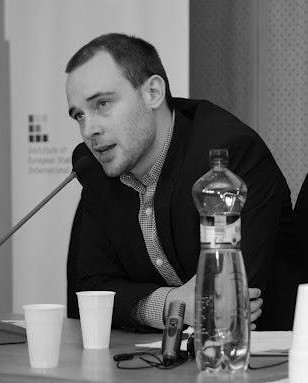
Andrew Wilkins is Reader in Education Policy and Co-director of Research in the Department of Educational Studies at Goldsmiths, University of London. He is Associate Regional Editor (Europe) for Journal of Education Policy and serves on the editorial board for British Journal of Sociology of Education, The Australian Educational Researcher and Journal of Applied Social Theory. His recent books include Modernising School Governance (Routledge 2016) and Education Governance and Social Theory (Bloomsbury 2018). Andrew is currently writing two books: Keywords in Global Education Policy: A Research Guide (with Steven Courtney and Nelli Piattoeva, Palgrave 2022) and Policy Foundations in Education (Bloomsbury 2022).
Report Abstract:
Sense making and coping with complexity: Using theory to reimagine governance
At the global level, the term ‘good governance’ has acquired a very specific meaning among large international organisations like the OECD and the World Bank who use the term to describe strategies that work to enhance the quality and standards of schools. This includes a strict focus on management control tools and systems (risk assessment, budget monitoring, performance appraisals, professional guidelines, and compliance checks) designed to improve transparency and accountability as well as render schools into calculable and comparable forms, often with equivalent and commensurate functions, so that they are more amenable to the scrutiny and statistical mapping of regulators and funders.
Yet despite the omnipresence of global definitions of education governance, the term is a notoriously fiddly concept owing to the ways in which education governance is restricted, rebutted or revised within different geo-political spaces to accommodate specific path dependencies and value systems. This is important to critical studies of governance given the wider tendency within education research to either overestimate the rationality and coherence of governance as a political programme or to rely on managerialist and technocratic perspectives that reduce governance to expressions of systems and structures (and which therefore ignore the slipperiness of education governance as the unique product of national and subnational politics and projects).
Moreover, there are a range of theoretical orientations and positions, each with their own epistemological and normative commitments and possibilities, through which education governance can be reimagined. In this talk I draw on various theoretical perspectives, including Gramscian (Davies 2012), deliberative-interactive (Kooiman 2003) and interpretivist-constructivist (Bevir and Rhodes 2006) approaches, among others, to demonstrate how education governance can be deconstructed from the vantage point of different theories and through using different kinds of analytical and political work.
speaker
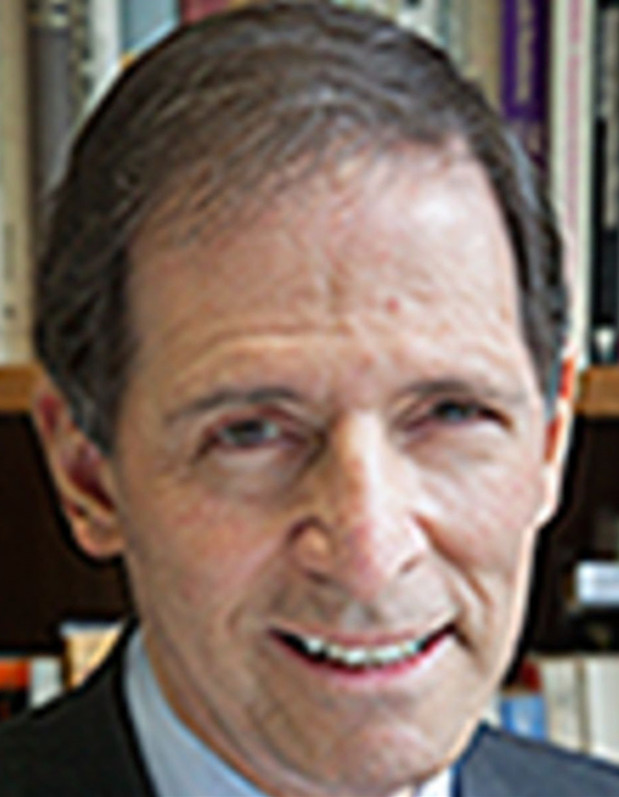
Gerard A. Postiglione is Coordinator of the Consortium for Research on Higher Education in Asia, University of Hong Kong, Faculty of Education. He is Emeritus Professor, Honorary Professor, and former Chair Professor of higher education studies and Associate Dean for Research. His scholarship includes 20 books and over 150 articles and chapters. He is a Fellow of the American Educational Research Association. His autobiography was published in Leaders in the Sociology of Education (2006). He co-received the China National Education Outstanding Achievement Award in Empirical Research (2009).
Report Abstract:
The Governance of Higher Education in Asia: Toward 2030
Quality has become the most pressing issue in higher education. It is topic of concern for governments, institutional leaders, enterprises, and a variety of other stakeholders, especially for students and their families. This concern emerged from simultaneous changes affecting higher education, such as the expansion of student numbers, the devolution of authority, new public sector management, finance and fund raising, and equity and social justice---all linked to calls for governance reform. Definitions of quality higher education can quickly outgrow their usefulness. As a dynamic entity, quality Higher education depends on who defines it, who it matters to, and who operates the mechanisms that monitors it. What counts is not always counted, and what can be counted does not always count. This talk identifies seven related areas of concern for quality and governance in higher education institutions.
speaker

Prof. Paul Newton is Professor in the Department of Educational Administration at the University of Saskatchewan. Formerly, he was an Associate Professor in the Department of Educational Policy Studies at the University of Alberta and a school principal in Saskatchewan, Canada. He serves as editor in Chief of the Canadian Journal of Educational Administration and Policy and is President of the Canadian Association for the Study of Educational Administration. His research interests include administrative practices, the principalship, sustainability and social justice in schools, educational improvement, teacher leadership, and theoretical constructions of leadership and administration.
Report Abstract:
Examining multi-levelled educational governance in Canada: The link between governance and educational quality
This presentation will examine Canada as a case in which diverse approaches to educational governance continue to be developed. The presentation is framed using the concepts of Hierarchy, Markets, and Networks (Greany & Higham, 2018) to explore how Canadian educational systems have been organized and reformed over the past several decades to respond to perceived or actual deficiencies in the performance of Canadian schools. The presentation will examine pressures on Canadian schools related to regional and community interests, national concerns and agendas, centralization and decentralization of schooling, school autonomy, market-based approaches, and accountability. Finally, this presentation will explore the merits of mid-level governance for both provincial public educational systems and Indigenous schools with respect to the academic performance of schools and community interests.
speaker
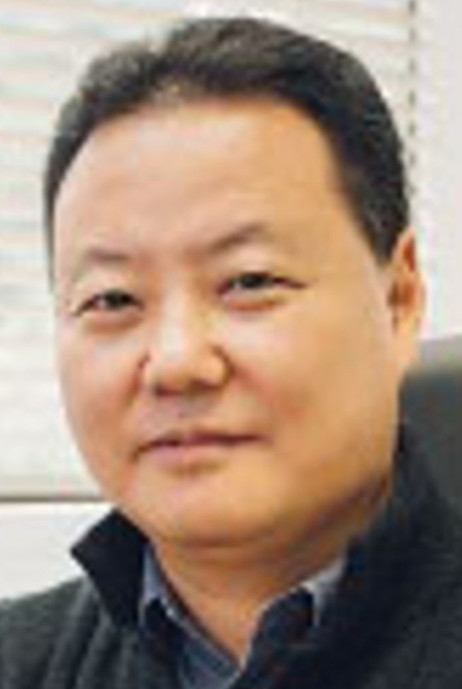
Rui Yang is Professor and Associate Dean for Research at the Faculty of Education in the University of Hong Kong. With an impressive track record on research at the interface of Chinese and Western traditions in education, he has established his reputation among scholars in English and Chinese national languages in the fields of comparative and international education and Chinese higher education. His research interests include education policy sociology, comparative and cross-cultural studies in education, international higher education, educational development in Chinese societies, and international politics in educational research.
Report Abstract:
Teasing out Facts from Fiction: Some Preliminary Reflections on Higher Education Governance
For long, when scholars in Chinese societies talk about governance, they employ definitions from the West. While more and more people realize the criticality of Chinese traditions in the practice of educational governance, such indigenous understandings have never been given much opportunity to influence the theoretical construction of modern governance in education. Instead, they have seldom be presented as established and coherent sets of beliefs, and thus have been largely devalued and even ignored in the highly institutionalized Western-styled higher education systems where fundamental assumptions of Chinese indigenous knowledge are excluded. Against such a backdrop, there has been a serious mismatch between theoretical understanding and actual practice of governance. Citing higher education as an illustrative example, this paper aims to offer some personal reflections on theoretical and epistemological predicaments in contemporary inquiry about governance. Starting from a critique of present failures in global governance, it points out that the solutions do not lie in simple insertion of Chinese traditions. It further argues that the fact that Western perceptions of governance have penetrated deeply into Chinese societies has significant although inconvenient implications for Chinese societies at theoretical, epistemological and practical levels.
speaker

Dr. Benjamin Green is a recent graduate of Beijing Normal University, Faculty of Education, and current Zhi-Xing US-China Leadership Fellow. His recent works on China HE, US-China relations, global governance, US digital nationalism, and Chinese internationalism have been published within Educational Philosophy and Theory, and Postdigital Science and Education amongst others. He has also contributed chapters to several edited volumes published by Springer Nature Group. He is currently affiliated with Beijing New Talent Academy, Cambridge International Center. His forthcoming (2022) book titled, The Pragmatic Instrumental Governance of Chinese Higher Education: Rational Chaos, Collective-Individualism, and Institutional Change, will be published by Routledge within the series Education and Society in China, edited by Gerard A. Postiglione and Zhu Zhiyong. He can be contacted via email: benbo83@gmail.com, Weixin: benbo83.
Report Abstract:
The Pragmatic Instrumental Governance of Chinese Higher Education: Rational Chaos, Collective-Individualism, and Institutional Change
Western systems of higher education (HES) experience much less governmental intervention and influence than does China’s HES (China HE). This study addresses the paradoxical ideology/paradigm of pragmatic instrumentalism that currently guides the development and governance of China HE, emphasizing the presence of competing and conflicting control logics. The study examines how ideologies affect the local institutional implementation of concepts such as academic freedom and institutional autonomy, particularly in the form of neoliberalism combined with a top-down and centralized system of political control. Utilizing first-hand data that provides an alternative subaltern narrative accounting, this research also aims to conceptualize China HE governance within a balanced view between insiders and outsiders. Such a perspective is unusual because both China’s authoritative experts and their Western contemporaries tend to take an overtly political approach to the issue of governance within China HE. This research will unpack this issue by providing conceptual, systemic, institutional, and lastly individual perspectives of HE governance within China. Thusly, this study utilizes three novel conceptual frameworks of pragmatic instrumental governance, rational chaos, and collective individualism to provide a new window for understanding China HE. The study opens new debates on governance, academic freedom, institutional autonomy, and agentic institutional change within a renewed understanding of how China HE works.
speaker
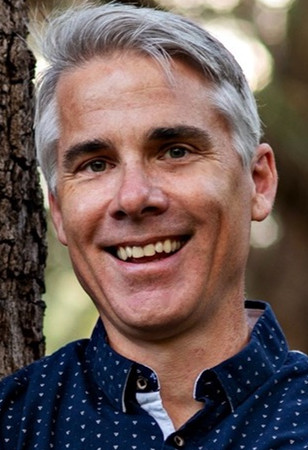
Prof. Aaron M. Kuntz holds the Frost Professorship of Education and Human Development at Florida International University, where he also serves as Chair of the Department of Counseling, Recreation, and School Psychology. Dr. Kuntz’s research focuses on developing “materialist methodologies” – ways of producing knowledge that take seriously the theoretical deliberations of relational materialism, critical theory, and poststructuralism. He grounds this work in empirical questions about the production of inquiry in the K-16 arena, faculty work and activism in postsecondary institutions, and the impact of the built environment on learning.
In 2015, Dr. Kuntz published his first solo-authored book, The Responsible Methodologist: Inquiry, Truth-Telling, and Social Justice (Routledge Press) which was selected as Honorable Mention for the 2017 AERA Qual SIG book award.
Dr. Kuntz’s latest book, Qualitative Inquiry, Cartography, & the Promise of Material Change (Routledge Press) was awarded the 2020 Outstanding Book Award from the Qualitative SIG at AERA.
Report Abstract:
Governing Inquiry:The Use of Methodology to Create Rational and Ordered Education
In this presentation I examine the strategic use of method and methodology to generate educational institutions and educated subjects that are both rational and ordered. Such a system has consequences. In particular, one effect of such normalizing practice is an over-reliance on both the technical application of research methods (and concomitant values of efficiency and standardization) and the products of methodological work (such as the research report or presentation). Such effects constellate around espoused notions of methodological expertise and research outcomes. Often, this results in two notable contemporary educational subjects: methodologists as technocratic middle-managers with little engagement with the logics and assumptions that grant select methods their institutional visibility; and educators who remain governed by rigid data outcomes extracted from local contexts. In response, I offer an engagement with educational inquiry that foregrounds immanent ethics and relational materialism as a means to simultaneously challenge conventional research logic and generate alternatives to the governing status quo.
speaker

Tim Hallett is Professor of Sociology at Indiana University USA and Director of the Karl Schuessler Institute for Social Research. He does research at the intersections of culture, organizations, education and social psychology. He is most known for his research on“inhabited institutions” (2021 Theory and Society with Amelia Hawbaker, 2010 American Sociological Review, 2006 Theory and Society with Marc Ventresca). He is currently working on a project that develops an inhabited institutional approach for understanding professional socialization via an ethnography of a Masters of Public Affairs program. In addition to his research on inhabited institutions, he has a new line of work that examines how social science ideas become public ideas, contributing to a sociology of public social science (2019 American Sociological Review with Orla Stapleton and Michael Sauder).
Report Abstract:
Learning to think like an economist without becoming one:Professional education and ambivalent reproduction in a Masters of Public Affairs program
In recent years sociologists have directed attention to the question of why economists have so much influence on policy in the global West. In this paper we shift the debate by asking a different, but related question: Granted that economists do have considerable influence, how do future policy professionals learn economic rationales? This question is important because it directs us to the processes through which economic styles of thought spread to future generations. Utilizing data from a 2-year ethnographic study of a Masters of Public Affairs program, we argue that students learn economics through a process of “ambivalent reproduction”: They learn to “think like an economist without becoming one,” rejecting the notion that they are economists and questioning the practical utility of economic theory, even as they are primed to accept the base legitimacy of economics as it pertains to policy matters. The process of ambivalent reproduction sheds light on the loosely-coupled influence of economics in the field of policy-making, and it contributes to a sociology of economics, institutional theory, and understandings of professional socialization.
speaker
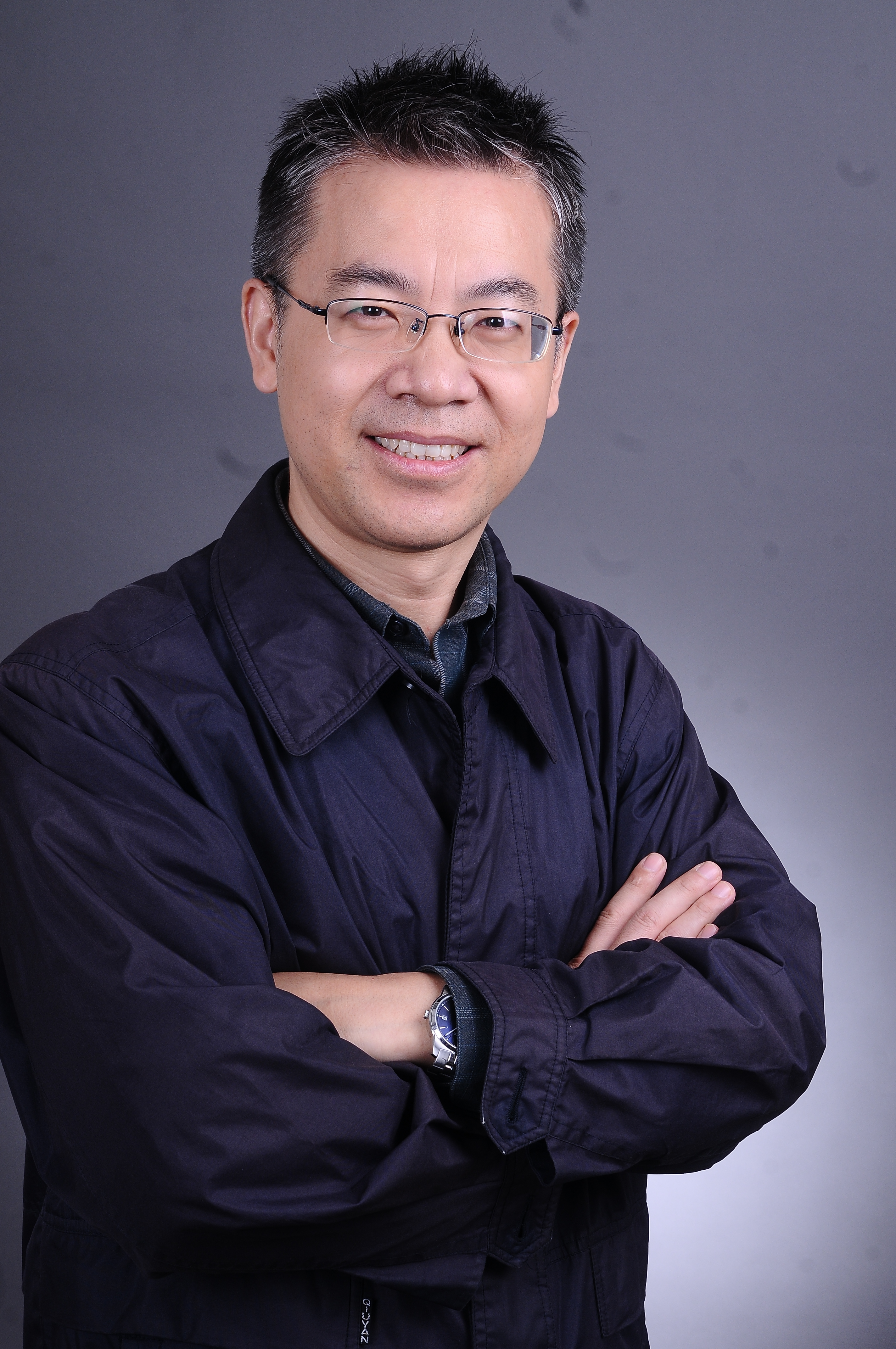
Zhiyong Zhu, Ph.D.,Professor of sociology and education at Beijing Normal University College of Educational Administration. Dr. Zhu has been interested in educational policy, teacher development, school management and leadership, higher education, school and society, and qualitative research methods.
Wenqi Zhang, Ph.D.,Student of University of Washington Seattle College of Education. She has been interested in educational policy, school principalship, sociology of education, and so on.
Report Abstract:
Accountable Assessment, the Rite of Passage, and Academic Ritual:The Meanings of Doctoral Dissertation Defense Institution from the Perspective of Inhabited Institutionalism
Whether the doctoral dissertation defense is an assessment or a form is a question needs to be answered academically and practically. From the perspective of new institutionalism, the doctoral dissertation defense institution is a confluence of different locally institutional meanings that are situated within group cultures. This cross-case comparative research using the perspective of inhabited institutionalism analyzes the meanings of the doctoral dissertation defense institution constructed by the actors of the three departments embedded in the same external organizational environment. The study reveals that under the constraints of the external institutional environment, three departments reproduced, challenged, and changed the institution of the doctoral dissertation defense through their actions and interactions. Ultimately, three departments construct meanings of the institution of doctoral dissertation defense as accountable assessment, the rite of passage, and academic ritual. These three meanings reflected group cultures that focus on academic quality, academic relationships, and academic freedom. Through the perspective of inhabited institutionalism, re-examining neo-institutionalism and symbolic institutionalism, this article further discusses the universities’ and departments’ common pursuit of legitimacy, reflected by a varying meaning of doctoral dissertation defense institution, and the degree of academic in the institutional chain.
speaker
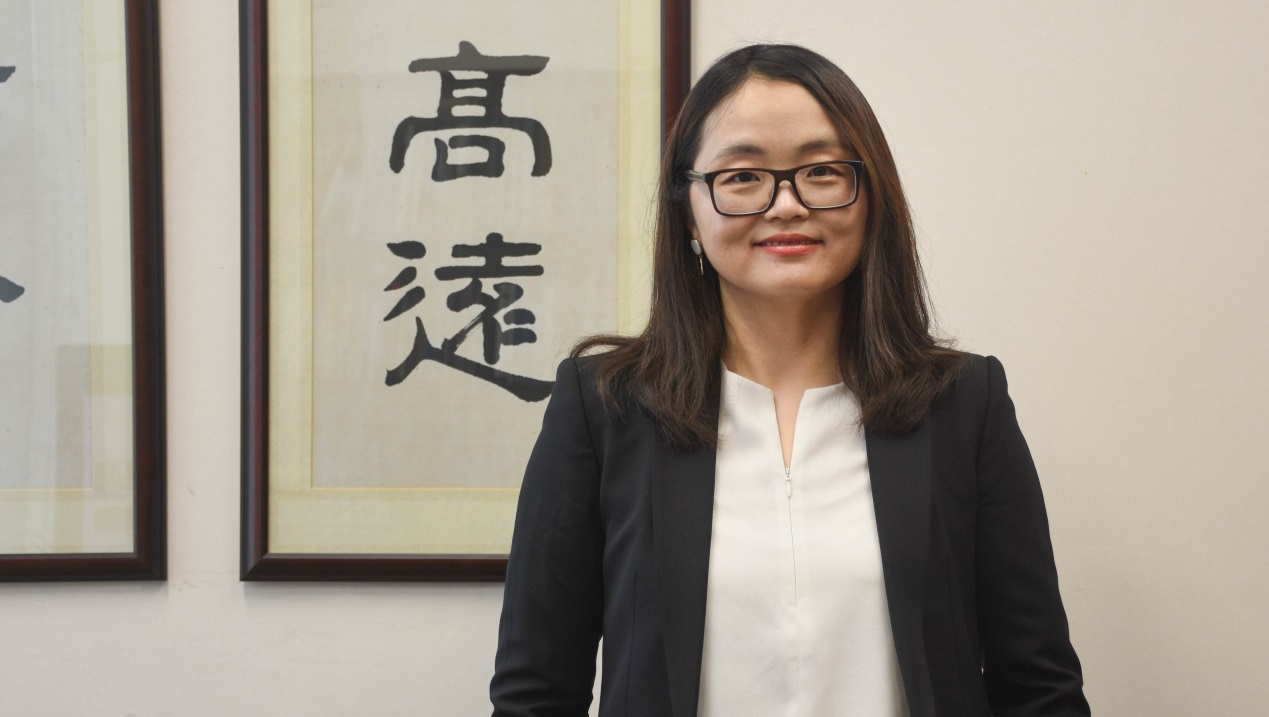
Haiyan Qian is an Associate Professor at the Department of Education Policy and Leadership and Director of The Joseph Lau Luen Hung Charitable Trust Asia Pacific Centre for Leadership and Change. She studied in Mainland China, UK and HK and worked in tertiary institutions in Mainland China and Hong Kong for accumulatively more than 15 years. She won the Early Career Award (2014/15) awarded by The University Grants Committee of the Hong Kong Special Administrative Region. She is also the awardee of The President’s Award for Outstanding Performance in Research (2015/16) and Outstanding Performance in Teaching (2016/17) of The Education University of Hong Kong. Her research interests include education leadership, school principalship in China and influence of the social and cultural context on schooling across Chinese societies.
Report Abstract:
System Leadership for Promoting Collective Responsibility in China: Boundary Spanners and Boundary Practice
Whole system reform involves all schools in a system getting better, often focussing primarily on closing the gap between high- and low-performing schools. By forging cross-school collaborative networks, system reform emphasises capacity building and sustained improvement. Under system reform, system leaders shoulder wide-ranging roles in supporting the progress of other schools and their own. System leaders act as boundary spanners (individuals who connect one community to another) and use boundary practices (routines that sustain connections between different communities of practice) to extend leadership arenas from within a school or organisation into interschool or broader networks. System leadership creates conditions for collective commitment and responsibility to improve student learning. However, relatively little is known about the pathways through which system leadership contributes to collective capacity and accountability in China. This talk draws on policy documents, literature, and our research in China to unpack the possible pathways. Specifically, the talk focuses on three selected reform initiatives in China. These are cross-school teacher learning led by expert teachers, Commissioned Administration (weituo guanli) and Principal Rotation (xiaozhang lungang). The talk then identifies the boundary spanners driving these initiatives and analyses their boundary practices.
speaker
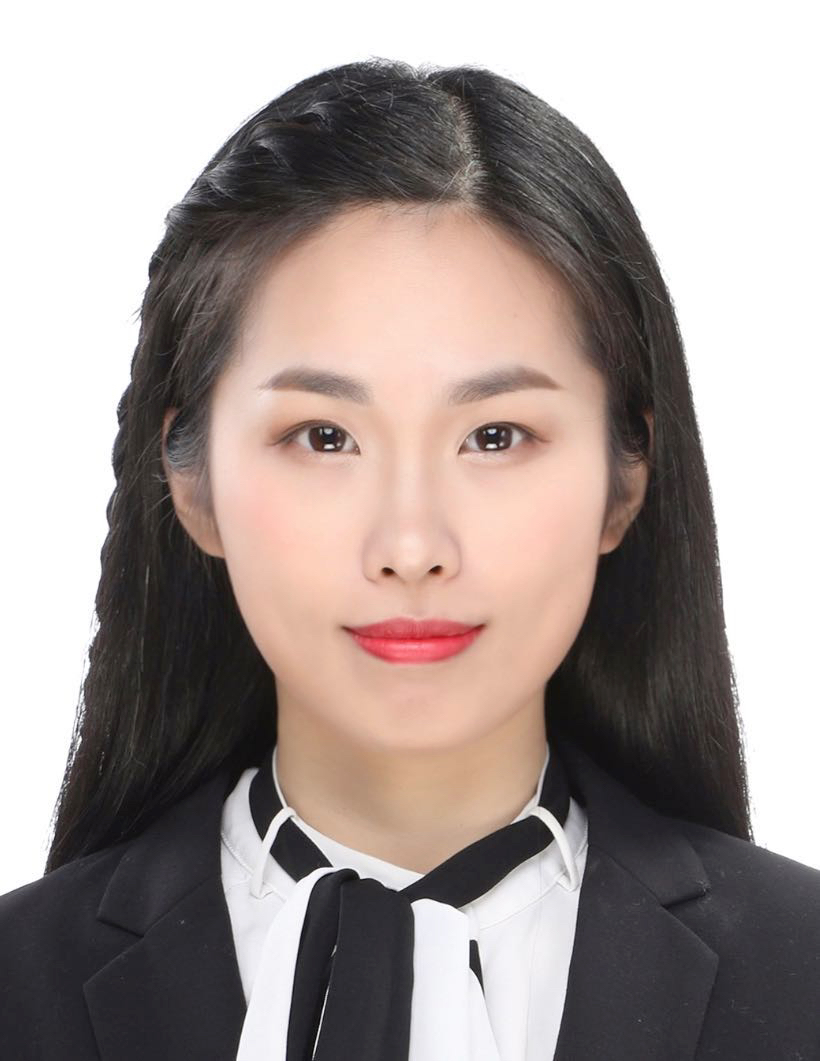
Dr Shuangmiao Han is a ZJU 100 Young Professor at College of Education, Zhejiang University. She earned a Ph.D/D.Phil in higher education from the University of Oxford. As a historically informed policy sociologist, Dr Han has focused her research and teaching on key policy issues in the area of higher education, including policy process, governance and reform.
Report Abstract:
Policy experimentation, education reform and China's experimental governance
China has adopted policy experimentation (PE) as a means of introducing and testing innovative policy options for reforms in higher education (HE). The nation-state has adopted the PE approach as a way to smuggle proposed reforms into sometimes-resistant HEIs. Meanwhile, elite universities have also used PE as a conscious tool for initiating changes of their own and negotiating leverage with the central government. The PE approach enables state-university interactions and power negotiations that create and maintain strategy space for institutional reforms. The state, however, retains ultimate authority for legitimatising, selecting and expanding policy experiments. It is best understood as ‘elite-enabled experimentation within existing political hierarchies’. The central government uses PE as a mechanism for adaptive learning of local innovations and creative management of uncertainty. Thus, PE can be regarded as a new way of HE governance in effectively mediating the state authority and university power in building consensus for China’s HE development.
Registration
Attendees are requested to submit registration information to the Email of The College of Education Administration, Beijing Normal University: jiaoguanyuan@bnu.edu.cn
Name | ID Number | Affiliation | Phone Number | |
Contact
Lin Zhang
Office of The College of Educational Administration, Beijing Normal University.
010-58800956
jiaoguanyuan@bnu.edu.cn
资讯推荐